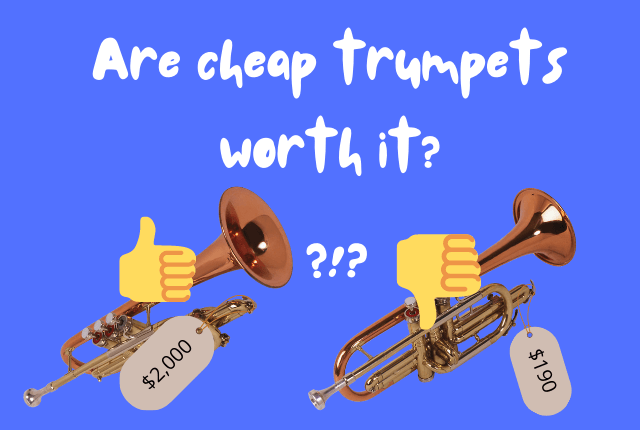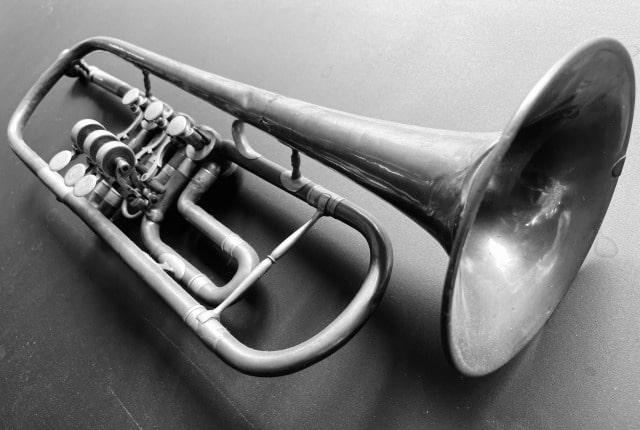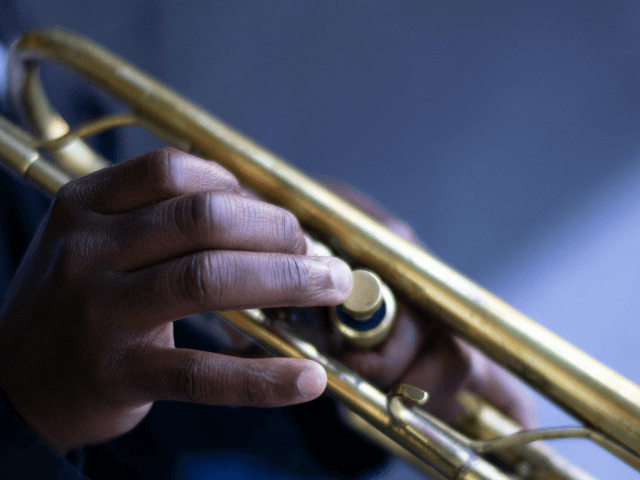You want to get started with the trumpet, but don’t know what’s the best way to get one? No matter your budget, we’ll try to help you decide if you should rent or buy your first trumpet.
Renting vs. Purchasing
The first and most important decision you can make when it comes to finding a trumpet for yourself or your child is whether or not you should purchase a trumpet outright, or start by renting one. There are advantages to both.
Renting a Trumpet
Renting is a common path for beginning trumpet players, as often you don’t know if you or your child will actually enjoy playing the trumpet. By renting a trumpet, typically for a 1-year arrangement, the student has a chance to try out the trumpet and see if they enjoy playing it or not. If they do not, then you did not waste the money of purchasing one.
Having said that, some places will offer to sell you the rental instrument once you want to stop credit and consider the money you paid towards it. This is up to them, however, so you may want to read or negotiate your rental contract if you decide to rent.
The obvious downside of renting a trumpet: If you or your child does go on playing, you’ll need to buy a trumpet anyway and the “rental” money is gone for good.
All in all, a rental is a great solution for the beginning, but not a great solution for the long-term, as it is around $20 a month to rent a trumpet.
Looking for a teacher?
Want to get lessons at the comfort of your own home? Check out the course Learn to Play the Trumpet: Beginner to Pro Made the Easy Way* on Udemy! (See their full trumpet course line-up here*!)
Purchasing a Trumpet
To purchase a trumpet, you need to invest quite a bit of money up front. If you’re not confident you or your child will stick with playing the trumpet, this is not the best solution for obtaining a trumpet for the first time.
A student level trumpet, on average, will cost you around $300-$500. To purchase a trumpet at the intermediate level, expect to part with $1200-$1500. (Although a lot can be said for skipping the intermediary step and getting a professional trumpet outright.)
As you can see, renting a trumpet for a year will likely still be cheaper than buying a new instrument, but it’s also money you could put towards a pre-owned instrument if you’re fairly certain the trumpet will be a long-lasting hobby.
If you want to buy a professional instrument but your bank account won’t allow it, consider places like SamAsh.com* who let you pay your trumpet off in monthly rates.
Components of a Good Trumpet
Perhaps you did not play any instruments in school, or even if you did, you might not have played the trumpet. So, when you are going to look for a new student level trumpet, what should you be looking for?
Here is the main thing you should be aware of – all trumpets should be played by someone who knows how to play the trumpet before you agree to rent or purchase. If the store or person you are dealing with will not allow you to take the trumpet out for someone to test, even with a deposit, you should be very wary of this and not trust the instrument. There are many different components which go into making the trumpet sound good, and if one of those is off, than the trumpet might not perform at its highest level.
Someone who plays the trumpet should look out for certain aspects, which include the quality of the note “C” when played. Does it sound slightly flat or slightly sharp? Overall, the notes should be very fluid and dynamic and be able to be played without disproportionate effort. If you can’t tell, take your music teacher with you to pick an instrument!
How Is It Mechanically Put Together
You might not have the ability to get the instrument tested out by someone who plays the trumpet, and you might not know what a C note should sound like. Do not despair, you can still check the trumpet out and see if it is in good shape. Here are some aspects you should check out with every trumpet.
Valves
The first thing you should check out is the valves, and the area around them. Are there any marks which look like dents? Are there any rips in the valves? How secure are the valves? If they move at all, or have any dents or rips in them, then you need to have that fixed before you take it.
Slides
Other things to look for include making sure that all the slides close completely. In addition to this, there should be two different rings or triggers to help adjust the tuning of the trumpet. You need to be able to move these easily and efficiently. There also needs to be something which will stop the third ring from sliding out, which is usually some sort of a rubber stopper.
Mouthpiece
Also, you will need to test out the mouthpiece, and ensure it is a good fit. There are different sizes of mouthpieces available, and so you need to ensure you have one that fits properly with your mouth. This is a piece which is very easy to exchange, so make sure you do so if needed.
Conclusion
As you can see, there are plenty of different aspects to the trumpet you need to be on the lookout for when you get the first one for your student. These ideas are true for both trumpets you rent or purchase, so no matter which path you choose, you need to ensure you have the right trumpet for you. Taking the time to make sure all aspects of the trumpet are in working order is vital towards your success with the trumpet. Good luck on finding the right trumpet, and hopefully it will lead you to enjoy this instrument for the rest of your life!
If you’re ready to buy, you might be interested in these guides, too:
- Best Student Trumpets
- Best Intermediate Trumpets
- Best Professional Trumpets
- Best Pocket Trumpets
- Different Types of Trumpets Explained
TrumpetHub.com is a participant of the Amazon Services LLC Associates Program, an affiliate advertising program. Links marked with an asterisk (*) are affiliate links. If you buy a product through an affiliate link, we will get a small commission without extra cost to you. This helps us earn an income off the free content we provide to you. Thank you for your support!







